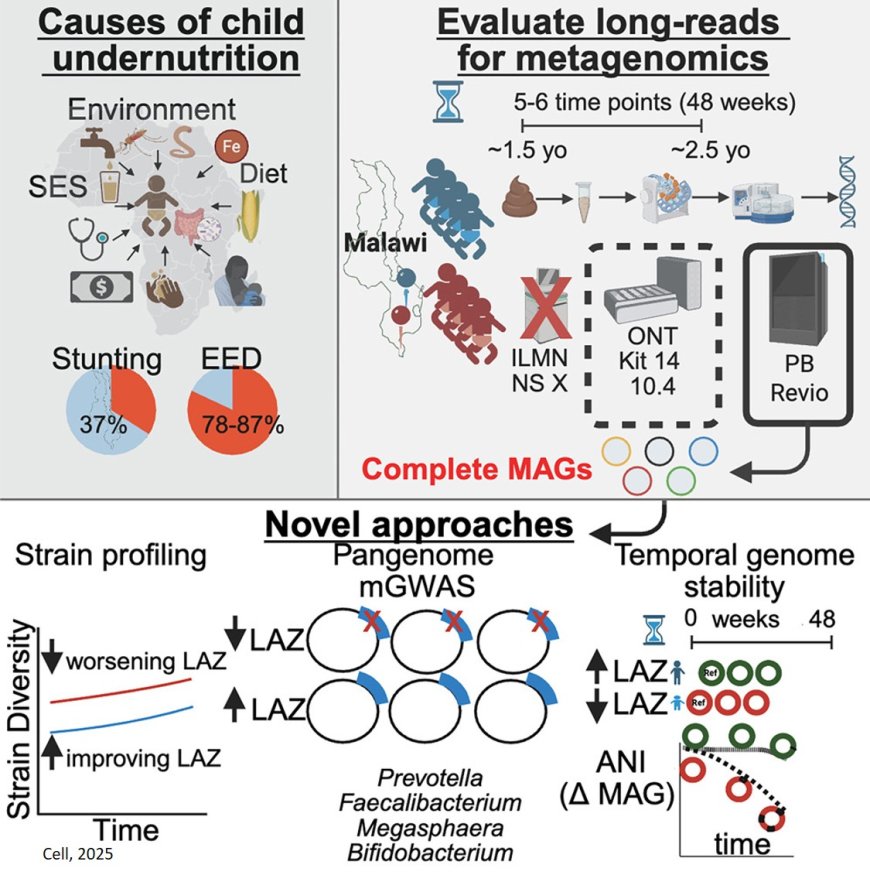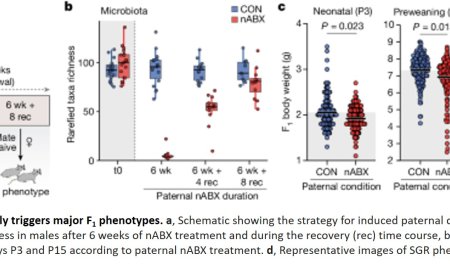Linking stable gut bacteria to healthy childhood growth

New research reveals that the stability of gut bacteria in early life plays a critical role in whether children thrive or struggle with undernutrition – a global health challenge affecting millions.
Published in the journal Cell, the study introduces a novel method for capturing the complete genomes of gut microbes, offering unprecedented insight into how bacteria shape childhood growth.
Using advanced long-read DNA sequencing, the authors followed children in the African nation of Malawi for nearly a year, building a catalog of nearly 1,000 complete bacterial genomes from their gut microbiomes.
The research team found that children who grew steadily maintained stable bacterial populations, while those with slower growth had gut bacteria that shifted over time.
“This tells us that gut health isn’t just about what children eat,” the author said. “If the microbial community is unstable, nutrients may not be absorbed properly – even if food is available. Our work suggests that the gut microbiome could be a predictor of which children are at risk for undernutrition, allowing for earlier and more effective interventions.”
The study also highlighted the importance of microbes passed from mothers during birth. Specific bacteria were found to vary significantly between villages, suggesting geography and culture strongly shape gut ecosystems, the author said. These findings underscore the need for global diversity in microbiome research.
The authors envision the work leading to low-cost diagnostics that can flag children at risk of undernutrition before symptoms emerge.
“Just like maternal HIV testing helps protect newborns, microbiome screening could one day guide preventative care for moms and babies,” the author said.












